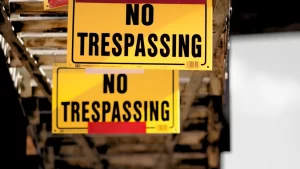In the intricate realm of estate planning, one crucial consideration that individuals must contemplate is the establishment of a Do Not Resuscitate (DNR) order. Crafting a comprehensive DNR directive requires a thoughtful analysis of an individual’s medical history, preferences, and legal requirements. At Morgan Legal Group in New York City, our team of experienced attorneys specializes in navigating the complex landscape of DNR orders to ensure that our clients’ end-of-life preferences are accurately documented and legally binding.In this article, we will delve into the essential requirements for DNR orders, shedding light on the legal intricacies that govern these critical end-of-life directives. By exploring the nuances of DNR documentation, individuals can equip themselves with the knowledge needed to make informed decisions about their medical care and assert their autonomy in times of crisis. From the statutory mandates to the practical considerations, our comprehensive guide will serve as a valuable resource for those seeking to navigate the complexities of DNR planning with confidence and clarity.
Requirements for a Do Not Resuscitate (DNR) Order
When considering a Do Not Resuscitate (DNR) order, there are specific requirements that must be met in order for the order to be valid and legally binding. These requirements ensure that the patient’s wishes are properly documented and followed in the event of a medical emergency. The following criteria must be met:
- Informed Consent: The patient must be of sound mind and able to give informed consent for a DNR order. This means that the patient fully understands the implications of not being resuscitated and has made a conscious decision to forgo life-saving measures.
- Medical Certification: A licensed physician must certify in writing that the patient has a terminal condition or irreversible illness and that CPR would be futile and not in the patient’s best interest.
- Documentation: The DNR order must be clearly documented in the patient’s medical records, including specific instructions for healthcare providers in the event of a medical emergency.
By meeting these requirements, patients can ensure that their end-of-life wishes are respected and that healthcare providers are aware of their preferences in the event of a medical crisis. It is important to consult with an experienced attorney to ensure that all legal requirements are met when creating a DNR order.
Understanding the Legal Implications of DNR Orders
When considering a Do Not Resuscitate (DNR) order, it is crucial to understand the legal implications and requirements involved. In order to ensure that a DNR order is valid and legally binding, certain criteria must be met:
- Written Documentation: A DNR order must be in writing and signed by a physician or another authorized healthcare provider.
- Patient Capacity: The patient must have the capacity to make decisions regarding their medical care and must consent to the DNR order.
- Family Notification: It is important to inform the patient’s family members or loved ones about the DNR order and involve them in the decision-making process.
| Requirement | Importance |
|---|---|
| Written Documentation | Ensures authenticity and validity of the DNR order. |
| Patient Capacity | Protects the patient’s right to make decisions about their medical care. |
| Family Notification | Promotes transparency and collaboration in the decision-making process. |
By understanding and adhering to these requirements, individuals can ensure that their wishes regarding end-of-life care are respected and legally binding. Consulting with an experienced attorney who specializes in estate planning and elder law can also provide valuable guidance and assistance in navigating the complex legal implications of DNR orders.
Factors to Consider When Drafting a DNR Order
When drafting a Do Not Resuscitate (DNR) order, there are several essential factors that must be carefully considered to ensure that the document is legally valid and effectively communicates the patient’s wishes. Here are some key requirements to keep in mind:
- Patient Capacity: It is crucial to confirm that the patient has the capacity to make decisions regarding their medical care and fully understands the implications of a DNR order.
- Medical Team Consultation: Before finalizing the DNR order, it is advisable to consult with the patient’s medical team to ensure that the decision aligns with the patient’s medical condition and prognosis.
- Witnesses: Having witnesses present during the signing of the DNR order can help validate the document and prevent any disputes regarding the authenticity of the patient’s wishes.
Additionally, it is essential to review state-specific requirements for DNR orders, as these can vary significantly. Working with experienced legal professionals, such as those at Morgan Legal Group in New York City, can help ensure that the DNR order complies with all necessary regulations and safeguards. By carefully considering these factors and seeking expert guidance, individuals can create a comprehensive and legally sound DNR order that accurately reflects their wishes regarding end-of-life care.
Ensuring Compliance with State Regulations on DNR Orders
Ensuring compliance with state regulations on Do Not Resuscitate (DNR) orders is crucial in the healthcare industry. Healthcare providers must adhere to specific requirements to properly execute DNR orders in accordance with state laws. These requirements include:
- Having a signed DNR form on file for each patient who has requested one.
- Ensuring that the DNR form is valid and up-to-date, meeting all state-specific criteria.
- Communicating the existence of a DNR order to all healthcare personnel involved in the patient’s care.
Failure to comply with state regulations on DNR orders can result in legal consequences for healthcare providers. It is essential to have a thorough understanding of the requirements and to regularly review and update policies and procedures to ensure compliance. By staying informed and following proper protocols, healthcare providers can protect themselves from liability and provide the best care for patients who have chosen to have a DNR order in place.
Q&A
Q: What is a DNR order?
A: A Do Not Resuscitate (DNR) order is a legal document that instructs healthcare providers to not perform CPR or other life-saving measures if a patient’s heart stops or they stop breathing.
Q: Who can request a DNR order?
A: A DNR order can be requested by a patient themselves, or by their legally appointed healthcare proxy if the patient is unable to make decisions for themselves.
Q: What are the requirements for a DNR order to be valid?
A: In order for a DNR order to be valid, it must be signed by a physician and in some cases, also by the patient or their legal representative. It must be kept in the patient’s medical records and easily accessible to healthcare providers.
Q: Can a DNR order be revoked?
A: Yes, a DNR order can be revoked at any time by the patient or their legal representative. It is important to communicate any changes in the patient’s wishes to healthcare providers.
Q: Are there any limitations to a DNR order?
A: A DNR order only pertains to CPR and other life-saving measures. It does not prevent other medical interventions or treatments from being administered to the patient.
In Summary
In conclusion, understanding the requirements for a Do Not Resuscitate order is crucial in ensuring your end-of-life wishes are respected. By discussing your wishes with loved ones and healthcare providers, you can make informed decisions about your care. Remember, it is important to review and update your DNR order as needed to reflect any changes in your health or preferences. Ultimately, having a clear and legally-valid DNR order in place can provide peace of mind during challenging times. Thank you for taking the time to learn more about this important aspect of advance care planning.



